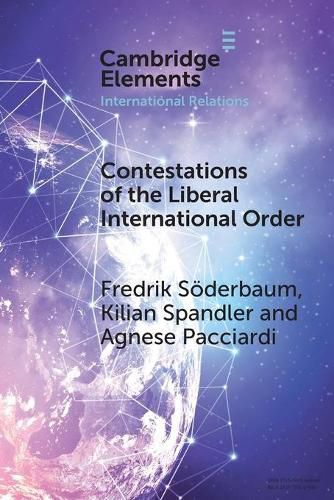Readings Newsletter
Become a Readings Member to make your shopping experience even easier.
Sign in or sign up for free!
You’re not far away from qualifying for FREE standard shipping within Australia
You’ve qualified for FREE standard shipping within Australia
The cart is loading…






A seemingly never-ending stream of observers claims that the populist emphasis on nationalism, identity, and popular sovereignty undermines international collaboration and contributes to the crisis of the Liberal International Order (LIO). Why, then, do populist governments continue to engage in regional and international institutions? This Element unpacks the counter-intuitive inclination towards institutional cooperation in populist foreign policy and discusses its implications for the LIO. Straddling Western and non-Western contexts, it compares the regional cooperation strategies of populist leaders from three continents: Hungarian Prime Minister Viktor Orban, former Venezuelan President Hugo Chavez, and Philippine President Rodrigo Duterte. The study identifies an emerging populist ‘script’ of regional cooperation based on notions of popular sovereignty. By embedding regional cooperation in their political strategies, populist leaders are able to contest the LIO and established international organisations without having to revert to unilateral nationalism.
$9.00 standard shipping within Australia
FREE standard shipping within Australia for orders over $100.00
Express & International shipping calculated at checkout
A seemingly never-ending stream of observers claims that the populist emphasis on nationalism, identity, and popular sovereignty undermines international collaboration and contributes to the crisis of the Liberal International Order (LIO). Why, then, do populist governments continue to engage in regional and international institutions? This Element unpacks the counter-intuitive inclination towards institutional cooperation in populist foreign policy and discusses its implications for the LIO. Straddling Western and non-Western contexts, it compares the regional cooperation strategies of populist leaders from three continents: Hungarian Prime Minister Viktor Orban, former Venezuelan President Hugo Chavez, and Philippine President Rodrigo Duterte. The study identifies an emerging populist ‘script’ of regional cooperation based on notions of popular sovereignty. By embedding regional cooperation in their political strategies, populist leaders are able to contest the LIO and established international organisations without having to revert to unilateral nationalism.